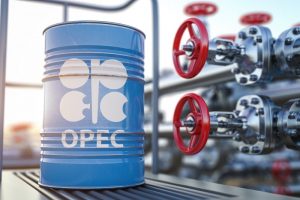By Ben Eguzozie
-
Said Western calls impugns socioeconomic sectors
-
Continent’s to be biggest oil, gas supplier by 2035
Gabriel Mbaga Obiang Lima, incoming president for 2023 of global oil cartel, the Organisation of Petroleum Exporting Countries (OPEC) has scoffed at Western nations’ mounting pressure for Africa to shift immediately away from further production and use of its vast fossils fuels deposits, on claims it is influential to global warming.
“It is criminal for Africans to abandon oil and gas resources, citing energy poverty and a just transition as key factors,” Lima, who is Equatorial Guinea’s minister of mines and hydrocarbons, said while speaking during the U.S.-Africa leaders summit.
Africa accounted for roughly eight percent of global oil output in 2021. Nearly 345 million metric tonnes of oil were produced on the continent in the same year. Also, in 2019, the continent’s oil output reached about 8.4 million barrels per day.
A new report said Africa, on a regional assessment, would become the world’s biggest supplier of oil and gas by 2035, with 18 nations in the continent producing oil. Five of the world’s top 30 oil producing countries are in Africa.
The incoming OPEC president said oil and gas development was quite important in Africa, and the exploitation of the continent’s natural resources will serve to reduce its energy poverty while establishing an independent path towards a just and inclusive energy transition.
With dwindling oil and gas projects and major divestments occurring throughout the industry, Africa’s vast newly discovered hydrocarbon honeypot is threatened.
“What we are not going to do is abandon a resource that can change our countries. We will continue drilling because we need it. Anyone asking African countries not to develop fossil fuels, is criminal. It is criminal because they are telling us that we do not have the right to develop. The largest number of members of OPEC this year are African countries. What you will have in 2035, (is that) you will have the African continent serving as the biggest supplier of oil and gas,” Lima said.
He argued that fossil fuels have an important role to play in the global energy transition; and would bring reliable energy to some 600 million people in sub-Saharan Africa who lack access to energy.
Many see oil and gas as a catalyst for Africa’s industrialisation, economic growth, and greater stability, with the exploitation of fossil fuels to be used to expand the continent’s wealth and energy security.
For the OPEC leader, Africa is not responsible for the climate crisis; the climate crisis has two players: the producers and the consumers. And what’s driving it is the demand.
Serving as one of the continent’s most significant impediments to socioeconomic development, eradicating energy poverty will require an immense and concerted effort, necessitating the utilisation of all energy resources available within the continent.
By far, many yet see natural gas, which is found in abundance throughout Africa, as a crucial tool to decarbonize the continent in pursuit of global climate sustainability goals.
Lima called on African governments to push back on the attempts by Western powers to prohibit the continent from paving the way for its own energy transition. He emphasised how oil and natural gas revenues, gas-to-power projects, and intercontinental collaboration can allow Africa to fully capitalise on the jobs and economic prospects associated with resource development and thus lead to a just and equitable energy transition.









